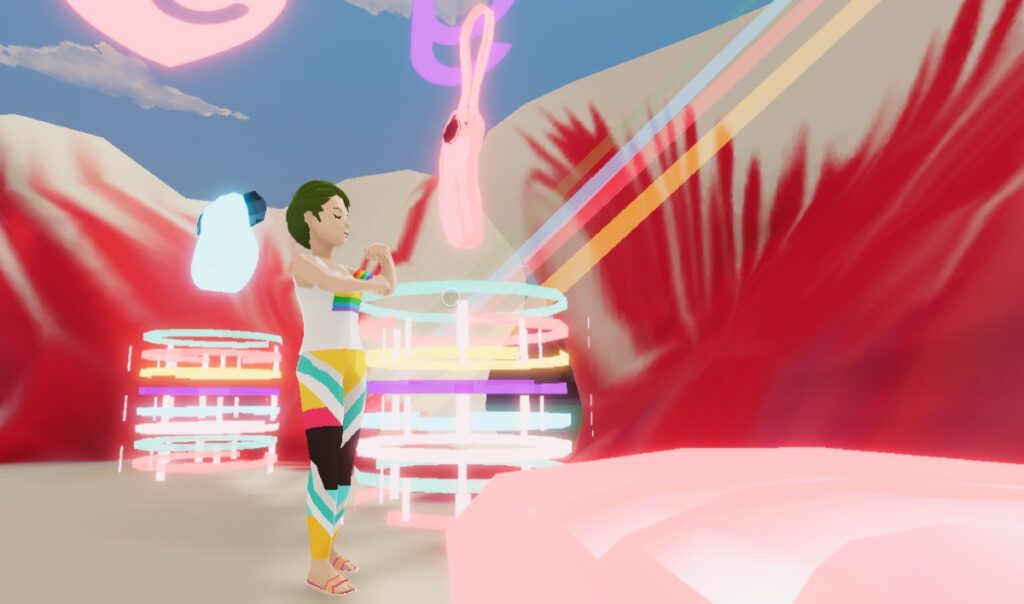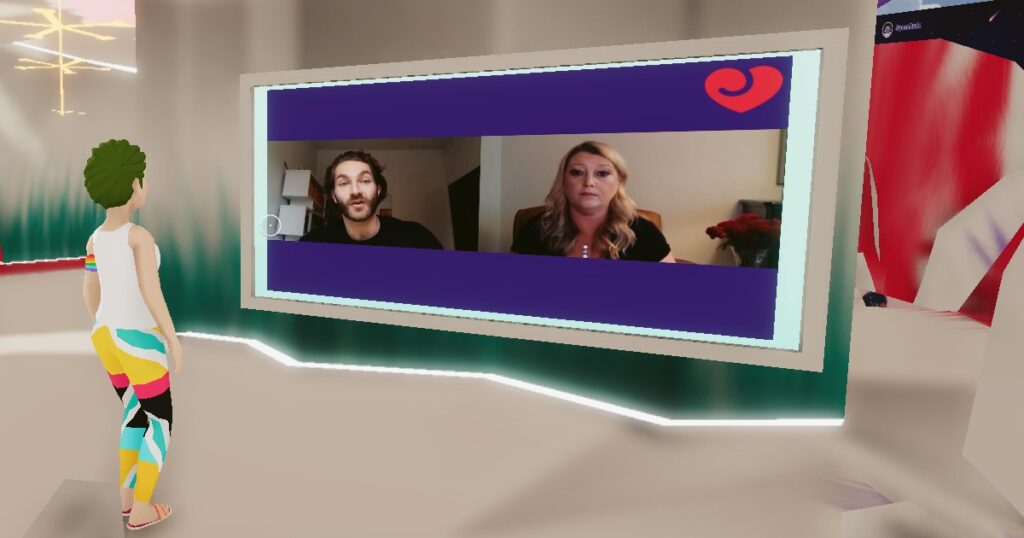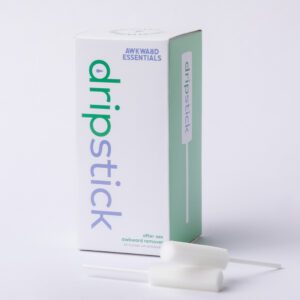LoveHoney Brings Sex Education to the Metaverse
SexForEveryBody.com is supported by our readers. We may earn a commission if you buy through links on our site. Learn more.

Would you visit a pop-up sex shop… inside a virtual world?
For the rest of July, adult brand LoveHoney invites you to create an avatar and enter its virtual space in Decentraland for an anonymous place to explore sexual wellness products.
The virtual pop-up marks the launch of Juno, a music-activated sex toy line your avatar can dance with atop the rooftop club, Club Juno. (Look above and you’ll see my digital self jibing next to the new love ring and vibrating egg.)
Each of the virtual sex shop’s floors offers a unique experience, including a pleasure product showcase and an erotic NFT collection via OpenSea. Sex education videos also feature experts talking on sexual well-being topics such as self-love and using sex toys with partners.
But beyond the digital sex shop itsels lies the greater possibility for the metaverse to make sex education more accessible.
What is the metaverse?
At present, the “metaverse” is an idea of what may be the next stage of the Internet: an immersive digital universe made up of a network of interconnected 3D virtual worlds. Our digital selves will be able to travel between them seamlessly using augmented and virtual realities.
Science-fiction writer Neal Stephenson coined the term in 1992. He used it in his novel Snow Crash to describe a digital world in which people interact as avatars.
Today the word has also entered the marketing lexicon of the tech world. Notably, tech giant Facebook changed its name to Meta in 2021 as it announced plans to build out its own metaverse across its platforms.
Meta, which controls Facebook and Instagram, has long been criticized by sex educators for the discriminatory, unclear, and inconsistent targeting of their social media accounts.
The company’s positioning to dominate the metaverse could have harmful effects on the sexual wellness industry.
On the flip side, LoveHoney’s pop-up inside Decentraland, a browser-based virtual world run by its users, provides a glimpse at a different possible future for sex in the metaverse.
“Even though we’ve made progress over the last twenty years, when it comes to sexuality and the way we treat the topic in society, there is still a long way to go,” said Johanna Rief, Head of Sexual Empowerment at Lovehoney.
“In a world where ‘Big Tech’ is silencing sexual wellness brands, with regulations on Instagram and Google becoming more and more tight, it’s exciting for us to launch an experience like this pop-up space.”
Related Read: Sex Education for Men Goes Virtual to Fill Gender Gap
‘Artists of sexuality’

There’s a huge opportunity for improvement in sex education with the evolution of the metaverse.
According to LoveHoney global sex tech expert Bryony Cole, the metaverse has the potential to “democratize access not only to sex education but to sexual expression and fulfillment to sexual happiness.”
She points to studies by the Guttmacher Institute that show young people in the US receive less sex education today than they did ten years ago. In some states, it is not required that sex education materials are medically accurate. Course material often is not inclusive of LGBTQ people.
“The combined relative anonymity, the intimacy of virtual worlds like this, make the metaverse an ideal platform for education for pleasure and for sexual health topics to really thrive as an engaging learning environment for really all ages,” said Cole.
“Whatever is in our minds we could create as artists of sexuality.”

Jenna Owsianik is a Canadian journalist and sex tech industry expert. She is the Founder and Editor-in-Chief of Sex For Every Body®.
Her expertise covers state-of-the-art sex technologies and the major fields driving innovations in intimacy: robotics, virtual reality, remote sex (teledildonics), haptics, immersive adult entertainment, human augmentation, virtual sex, and sexual health.
A trained journalist with a Masters of Journalism from The University of British Columbia, Jenna’s reporting has appeared on Futurism.com, Al Jazeera English, CTV British Columbia online, CBS Sunday Morning, CBS 60 Minutes, Global News, and CKNW Radio in Canada and the United States.













